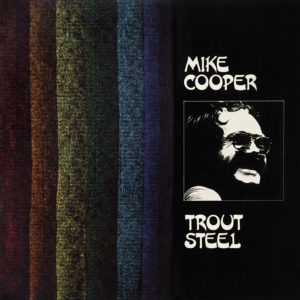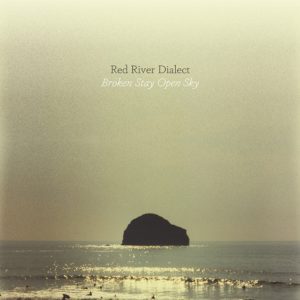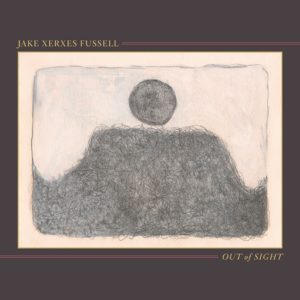On his playfully subversive fourth solo album, Nathan Bowles (Steve Gunn, Pelt, Black Twig Pickers) extends his acclaimed banjo and percussion practice into the full-band realm for the first time, showcasing both delicate solo meditations and smoldering, swinging ensemble explorations featuring Casey Toll (Jake Xerxes Fussell, Mt. Moriah) on double bass and Rex McMurry (CAVE) on drums. As he considers the cycles of deceit and self-deception that shape both our personal and political lives, a mixed mood of melancholy and merriment permeates Bowles’s own compositions as well as the interpretive material, which draws from traditional Appalachian repertoires and the diverse songbooks of Julie Tippetts, Cousin Emmy, and Silver Apples.
Highlights
- The follow-up to the critically acclaimed Whole & Cloven (2016, PoB-028) and Nansemond (2014, PoB-016)
- Deluxe 140g virgin vinyl LP features heavy-duty board jacket, color LP labels, and high-res Bandcamp download code.
- CD edition features gatefold jacket with LP replica artwork.
- RIYL: Steve Gunn, Jake Xerxes Fussell, the Black Twig Pickers, Pelt, Jack Rose, Michael Chapman, Bill Callahan, Josh Abrams and Natural Information Society, Daniel Bachman, Marisa Anderson, William Tyler, Hiss Golden Messenger, Mary Lattimore, CAVE, Henry Flynt, Clive Palmer, Terry Riley, Julie Tippetts.
- Album page
- Artist page/tour dates/links
Physical format music purchases from the PoB webstore and Bandcamp include digital downloads when feasible. Some, but not all, pre-2023 vinyl pressings also include a download coupon. For digital preorders and high-resolution digital downloads, please visit our Bandcamp page.
Tracklist
A1. “Now If You Remember” 2:50
A2. “The Road Reversed” 10:36
A3. “Umbra” 4:28
A4. “Elk River Blues” 3:10
B1. “Ruby/In Kind I” 6:21
B2. “Girih Tiles” 4:40
B3. “Fresh & Fairly So” 3:47
B4. “In Kind II” 3:40
B5. “Stump Sprout” 2:24
[date_and_catalog_section rdate=’October 5, 2018′]
Purchase from PoB above or support via
[related_albums]
Album Narrative
-

-
Photo by Brad Bunyea.
-

-
Photo by Brad Bunyea.
-

-
Photo by Brad Bunyea.
-

-
Photo by Brad Bunyea.
-

-
Photo by Brad Bunyea.
“Nathan is brainy and bookish and likes whiskey. He has that intense air that can fall away to mirth. His approach to music appears curious, knowledgeable, playful, intuitive, still. He knows he has a thing going on, and that he can apply that thing to things! To many different things. Maybe that thing is the grand blankness of seeing everything at once. Or maybe it is a pinhole vision that soothes and subjects in its narrowness.
“I think these new songs nurture their dialectic opposites, and that is their appeal—the drone has the aspect of melody, the melody has the aspect of drone. I don’t think Nathan has ever ridden a dolphin, but I think if faced with the task he would cotton quick. That’s how I see his approach to his music.”
– Bill Callahan
Plainly Mistaken, the playfully subversive fourth solo album by Durham, North Carolina multi-instrumentalist Nathan Bowles, begins with a lullaby written by a child for an adult. The seven year-old Jessica Constable composed “Now If You Remember”—the titular lyric continues, precociously, “we were talking about God and you”—for English singer Julie Tippetts’s 1976 album Sunset Glow. Bowles’s ethereal rendering represents a rather radical departure from his previous recordings; his placidly plaintive singing has been stripped of its otherwise genial, ursine gruffness, and the brief song floats by on the sedative ebb tide of banjo and pianos both acoustic and electric.
Following that role reversal—a child assuming the role of parental bedtime bard—is the ten and a half minute-long album centerpiece “The Road Reversed,” a reversal (and vast expansion) of previous directions both sonic and congregational. Here, and throughout Plainly Mistaken, Bowles extends his acclaimed solo banjo and percussion practice into the full-band realm for the first time, showcasing both delicate solo meditations and smoldering, swinging ensemble explorations. “The Road Reversed” introduces the growling, bowed double bass of Casey Toll (Jake Xerxes Fussell, Mt. Moriah) and the rigorously precise minimalist drumming of Rex McMurry (CAVE), both of whom feature on five of the nine tracks herein and are integral to the record’s ambitious palette and limber but exacting rhythmic structures. “The Road Reversed” likewise introduces, and lays authoritative claim to, the full compositional extent and capacity of this unorthodox banjo-bass-drums trio, the spacious sonority of which might best be described as arboreal in texture and heft. No instrument impinges on the frequency of another—instead, they feel like towering ligneous parallels, great swaying longleaf pines that arc and bend perilously together in heavy winds, groaning in head-nodding 5/4 time but remaining upright and rooted.
Plainly Mistaken, its title apt, adjusts assumptions we might have made about the scope and scale of Nathan’s music, which sounds both more exquisitely controlled and more dangerously unleashed than ever before. We hear here his ever restless roving between the poles of Appalachian and Piedmont string band traditions and ecstatic drone. In the former category are his percolating full-band rerecording of Ernie Carpenter’s “Elk River Blues” (which previously appeared in a very different solo iteration on A Bottle, A Buckeye [2012]); “Fresh & Fairly So,” the indelibly careening melody of which could be an old-time standard; and “Stump Sprout,” the ghost of a misremembered reel. The latter category includes the solo recordings “Umbra,” “Girih Tiles” (played on the “mellowtone,” a custom banjo/bazouki hybrid instrument built by Rex McMurry’s father Maurice), and the improvised “In Kind” suite. However, never before has Bowles offered such a surprising, but succinct, crystallization of his diverse work with other groups—Steve Gunn, Pelt, the Black Twig Pickers, and most recently, Jake Xerxes Fussell’s band, in which he serves double duty on drums and banjo—made possible here by the fleshed-out full-band configuration and arrangements. Colleague and mutual musical admirer Bill Callahan writes of these scale shifts in Nathan’s music as, alternately, “the grand blankness of seeing everything at once” or “a pinhole vision that soothes and subjects in its narrowness”—the two conditions as, perhaps, two sides of the same equation of Panopticon-to-pinhole compositional logic. That also sounds like a description of spiritual jazz, or the trance context of gnawa song, both of which inform Bowles’s work here.
But this is not solipsistic music. Plainly Mistaken also gestures outward to the world, as Bowles considers the cycles of deceit and self-deception that shape both our personal and political lives. “I’ve come to the conclusion,” he writes, “that we’re generally ahistorical and snowblind, unable to adequately digest the past in order to live sufficiently in the present.” The album jacket includes a quotation from Javier Marías’s 2014 novel Thus Bad Begins: “We go from deceit to deceit and know that, in that respect, we are not deceived, and yet we always take the latest deceit for the truth.” It might be funny if it wasn’t so devastating.
And so a mixed mood of melancholy and merriment permeates Bowles’s own compositions as well as the interpretive material. His rambunctious and exuberant version of Cousin Emmy and Her Kinfolk’s 1946 proto-bluegrass classic “Ruby,” the other vocal track here—elided with “In Kind I”—draws primarily from the 1968 version by Silver Apples instead of the canonical versions by the Osborne Brothers or Buck Owens, thereby embodying a tribute to a palimpsest of bluegrass-meets-avant-garde iterations that perfectly suits Nathan’s own practice. In its trio-fueled headlong canter, “Ruby” feels unhinged and manic, a sinister interrogative mantra that encapsulates the slippery cycle of deception and stuttering accusation that plagues our contemporary cultural moment.
Ride the dolphin.
Acknowledgments
This year, I couldn’t get enough of Nathan Bowles’s rich, mesmeric banjo playing. I found myself telling anyone who would listen that he’s the perfect mix of Roscoe Holcomb and La Monte Young—a traditionalist who isn’t afraid to get weird.
– Amanda Petrusich, The New Yorker (“The 10 Best Albums of 2018”)
Like Coltrane, Bowles tears open a tiny piece of fabric in the folk music continuum to let in the cosmic debris.
– Lars Gotrich, NPR Music
Few performers have advanced an instrument like Carolina native Nathan Bowles has. He is to the banjo what Jansch was to the guitar – a folk artist, a seeker, and a seer. Equally adept at old-time traditional whilst exploring modernist ideals, Bowles is a contemporary marvel.
– Gareth Thompson, Rock’n’Reel
Mixing a deep knowledge of regional folk traditions with a delight in modern composition, the banjo player and his exploratory new trio are delightfully suspended between earth and outer space. There’s something slightly mysterious under the surface, as though you’re watching him astral-project. The result is his best album to date—his most mystical and earthbound, all at once.
– Stephen Deusner, Pitchfork
4/5 stars. For the past decade or so, some of the most vibrant US underground music has operated in an intervene between folk, psychedelia, and the avant-garde—and North Carolina-based banjoist Bowles has been involved in a hefty proportion of it. [He] has been stealthily releasing solo records of incremental potency and invention. This, the fourth, is his best yet, a mix of reimagined trad pieces, diverse covers… and elegantly rowdy jams. Bowles and his rhythm section find a groove comparable to Deutsche motorik, or Tuareg desert rock, adding a new thrust to their Appalachian trance-folk.
– John Mulvey, MOJO
Plainly Mistaken immediately sounds lightyears ahead of its predecessor, with minimalist rhythmic leanings and Bowles vocals drifting up front and center into their first appearance on record as well. And as they drift out, the man’s mastery of his main instrument comes into full focus with droning Appalachian séances that bloom outward into revelatory jams.
– Aquarium Drunkard (“2018 Year In Review”)
8/10 stars; Americana Album of the Month. Much like his late friend Jack Rose, Bowles has devoted his creative life to expanding the dialogue between modernist iron and old-time mountain music. Whatever the setting, Bowles’ music is rarely less than seductive, the product of both a gifted multi-instrumentalist and restless cultural forager.
– Uncut
Experimental banjoist Nathan Bowles is a stalwart of the new Americana resurgence orbiting the Paradise of Bachelors label. He finds ways to apply classically rustic techniques to new frontiers of sound.
– Stereogum
A much-appreciated freakfest [from] the banjo king. The man has lost it here.
– The FADER
Wends its way thru hypnotic landscapes… demonstrates his vitality in forging new routes through old-timey music.
– The Quietus
Like much of the finest traditional music, Plainly Mistaken borders on the ecstatic and spiritual, but also knows when it’s time to hit the jug.
– Record Collector
Expect your record collector friends who adore the likes of John Fahey and Bowles collaborator Steve Gunn to be on this like flies on sherbet. They won’t be the only new devotees, as Bowles’ instrumental jams should impress anyone with an appreciation for modern updates to Appalachian music, from deadheads to hardcore bluegrass musicians.
– Wide Open Country
Bowles’s finest album yet, a confident recording skilfully crafted and well balanced and containing some of his most challenging and thought-provoking playing.
– Folk Radio UK
4.5/5. Nathan Bowles has been exploring the links between Appalachian folk music and more abstract drones to wonderful effect, equally at home with melodically simple jigs or something more experimental.It’s a beauty; a really special record.
– Narc
Bowles does many things right here. He plays banjo with unfussy grace and sings with raw spirit. He hammers styles together like a master carpenter. [Plainly Mistaken] takes you through joy, pensiveness and perturbation with nary a wrong turn.
– Magnet
He takes some of the oldest instruments known to humanity and wields them in ways that both evoke the past and challenge their future roles in pop and roots music. An important addition to the canon of bluegrass and roots music.
– No Depression
Plainly Mistaken is another example of Nathan Bowles’s mastery of his instrument and it’s a wonder to see how far he can stretch the possibilities of the banjo.
– Americana UK
Nathan’s music is marked by both his deep study of vernacular American forms and his years-long dedication to the development of his own voice. He is a musician who respects tradition as he values experimentation, an artist whose work commands careful listening. This balance is what makes Nathan’s voice singular: as a player, he is fearless, challenging. And as a listener, I am grateful and inspired.
– Steve Gunn
Nathan Bowles is like my spirit animal. It’s the real shit … beautiful then, beautiful now. Timeless.
– Kurt Vile
I have huge respect for Nathan as a musician on so many levels.
– Michael Chapman
Splits the difference between Jack Rose-ian acoustic romps and Henry Flynt-y drone jigs. A portal through time.
– NPR Music
Bowles has the power to transform the sound of a banjo—and folk music—into something transcendental … something boundless and new. [He’s] a crucial force in folk music, showcasing his ability to interweave the genre’s communal spirit with chilling moments of ambient introspection.
– Pitchfork
Timeless melodies blending seamlessly with hypnotic minimalist moves. He makes these juxtapositions seem as natural as a rolling mountain stream, while still dazzling with his impeccable technique. His rhythmic instincts are essential here, and set him apart.
– Aquarium Drunkard
He belongs to a school of contemporary musicians—guitar players such as William Tyler and Steve Gunn—who are rethinking folk music as an avant-garde form. His style is scraggly yet sophisticated, ranging boldly from country drones to rambunctious rural ragas… Sounds like Philip Glass playing to barnyard animals… balances the cerebral with the soulful.
– Uncut
Wry, sad, troubled, and mesmeric compositions imbued with a spooked and grainy Appalachian potency. Rich chaparrals of deep buzzing color you could lose yourself in forever.
– MOJO
Stunning. A Terrence Malick film with just a handful of strings.
– Grantland
Fluidly melodic digressions and pungent dissonances generate a forward momentum and haunted atmosphere. Emotionally compelling statements.
– The Wire
Filled with shimmering, ecstatic moments … that explore the emotional ground between gentle melancholy and almost unbearable sweetness. A blend of soulful country boogie, avant-garde minimalism, and ancient string-band traditions.
– FLOOD
Nathan Bowles writes songs for the quiet night of the heart. A banjo can speak, but Bowles makes it talk. It’s in the midst of trying to discern whether he’s making it speak on grief or the absurd that you’ll realize they’re one and the same. Come for Zen koans in backwoods plucking, stay for unsettling moments of noisy dissonance.
– Uproxx

















